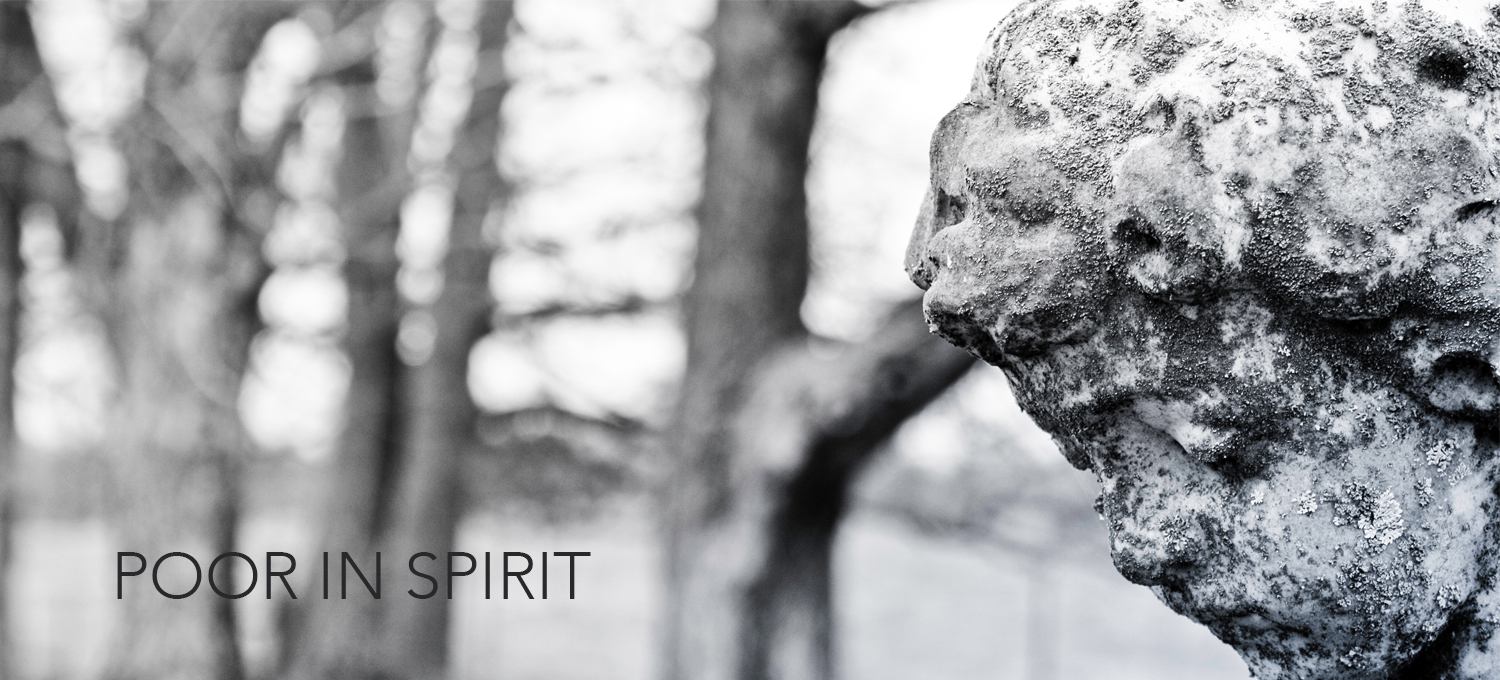You’ve just finished a journey. This journey lived several stories that stretched several thousand miles and most likely several years. This journey charred you with fire and numbed you with cold. This journey saw you attacked and even left to die at some points. This journey manifested itself in the form of loneliness and sadness. This journey saw moments of strength and moments of weakness. This journey saw the wilderness and this journey saw the oasis. Your clothes are torn, your shoes have holes in them, and your body is covered with scars from old wounds and bandages from new ones. Your journey is finished.
The journey I’m speaking of is the journey you take from the time you’re born to the time you’re born again. Using the language of the beatitudes, this journey is from the time you’re born to the time you discover you’re poor in spirit. The beatitudes, found in Matthew 5, are Jesus' way of describing how Christians are and how they should be.
Being poor in spirit is a gateway trait. It brought you to the gates of the kingdom of God where you realized you need Jesus. Jesus died on the cross for that very moment when you turn to Him and repent of your sins. But the pains, wounds, and scars brought on by your sins from the journey still plague you. You’re born again. You’re in the family. You’re in a safe place. But you still find yourself grieved by what sin has done to your life.
Jesus anticipated this long before it ever happened. This is why he gave us the Holy Spirit. He knew we would mourn when we realized the devastation brought on by our sin.
Matthew 5:4 – "Blessed are those who mourn, for they shall be comforted.”
When you see your own spiritual poverty (poor in spirit), you enter the kingdom of heaven. Your reaction to being poor in spirit is mourning. Mourning because you are aware and ashamed of your sins. Jesus promises comfort for this type of mourning. In fact, He promises comfort from the one called Comforter (John 14:16, 26; John 15:26; John 16:7).
The source of this comfort is the Holy Spirit. The beauty of the Holy Spirit being our comforter is that He lives inside of us. The wounds and scars from the past are slowly, but surely, healed as Comfort Himself comforts us. Our guilt and shame from our sin cause us to mourn. So, He comforts us.
Jesus tells us that we are blessed when we mourn. Mourning over sins is not ordinary mourning. Mourning over sins is divine. Thus, we need divine comfort. Worldly comfort is mostly limited to creating environments where we feel okay. Heavenly comfort is much more. The Holy Spirit doesn’t just comfort our mourning brought on by sin. The Holy Spirit also intercedes for us so that we may be strengthened to avoid a sinful lifestyle. When He comforts us, He is not just soothing us spiritually, but He is also preparing us to persevere through the trials and tribulations the world drags us through.
It’s interesting to see the correlations between the beatitudes and our salvation story. We give our lives to Christ and are born again. This correlates with being poor in spirit because we realize we need Jesus. After we are born again, we receive the Holy Spirit (the Comforter) to heal and guide us. This correlates with being blessed for mourning because those who mourn are comforted.
The first two beatitudes are foundational; they are divine traits of Jesus’ followers. We may only be born again once, but it is just the beginning. It is the daily acknowledgement of our continual need for Jesus that keeps us poor in spirit. We may only repent for 23 years of sins once, but we should never find ourselves in a place where we take sin lightly. Our sin and the sins of those around us are always cause for mourning. It is this type of mourning that is of heaven, for it is an open invitation for the Holy Spirit to come and transform.
-Andrew Apple



